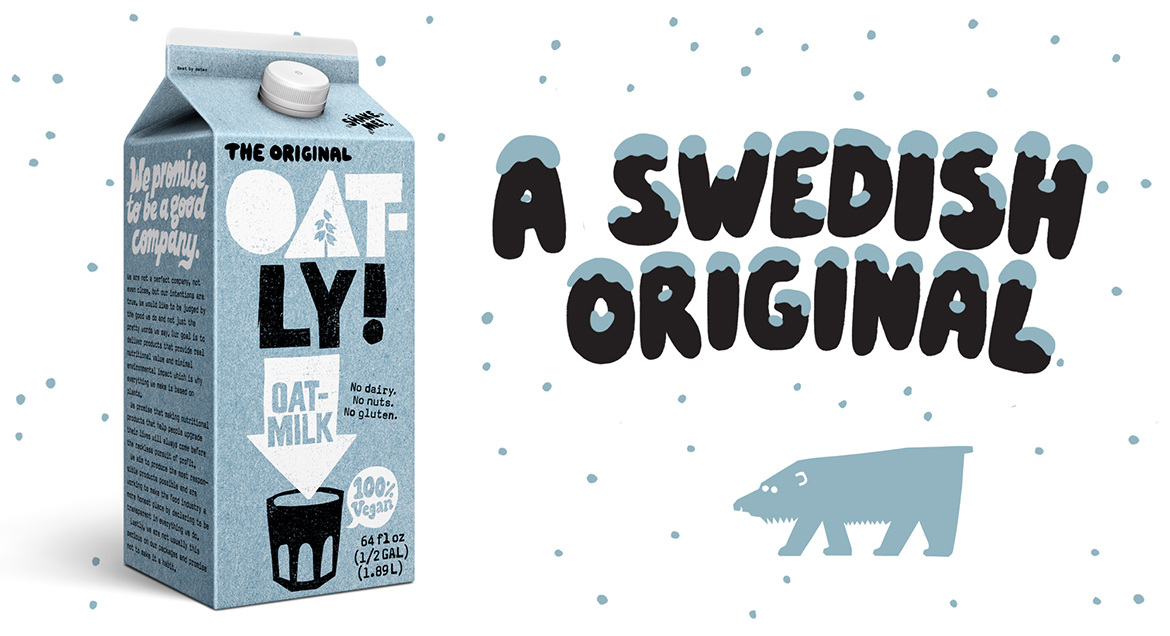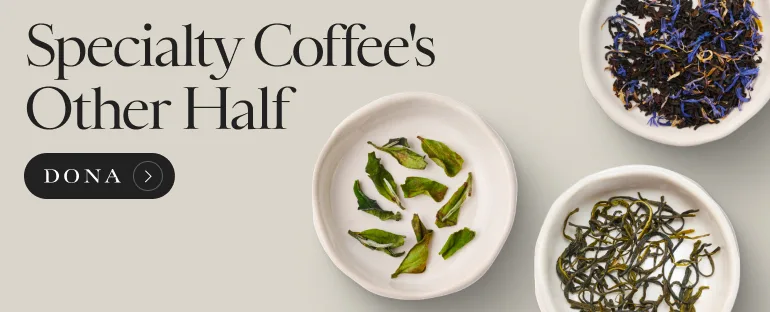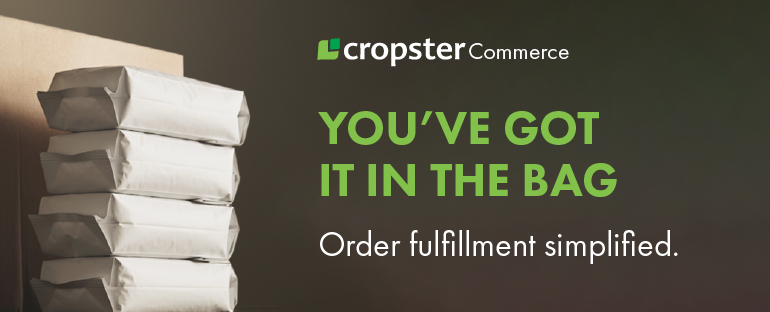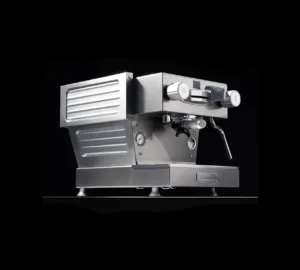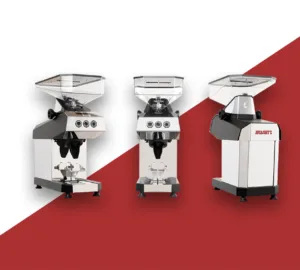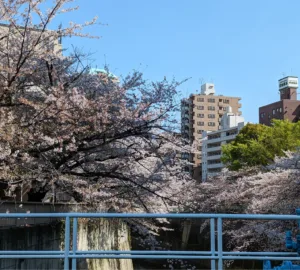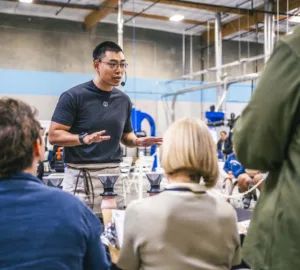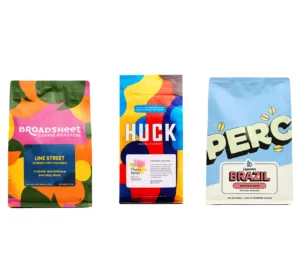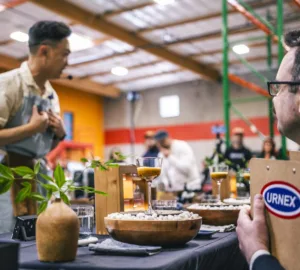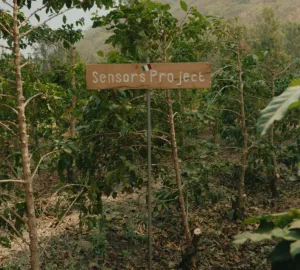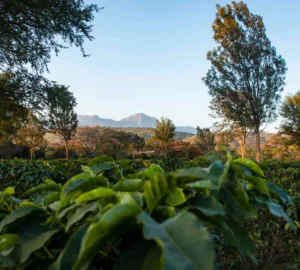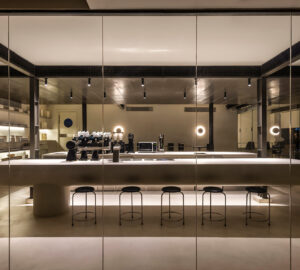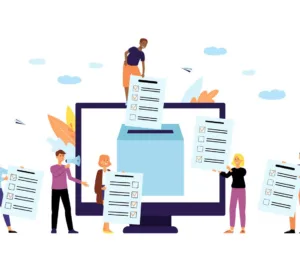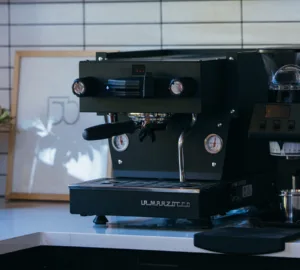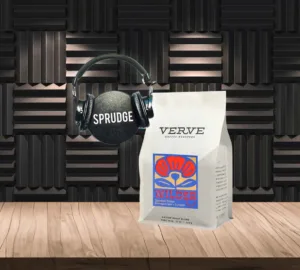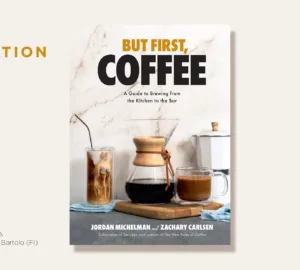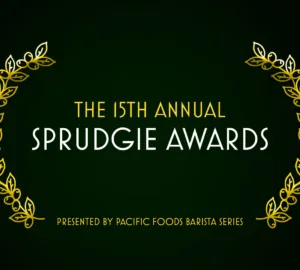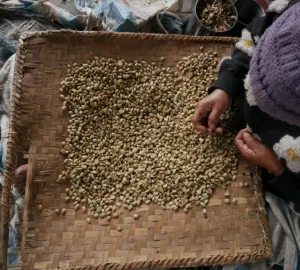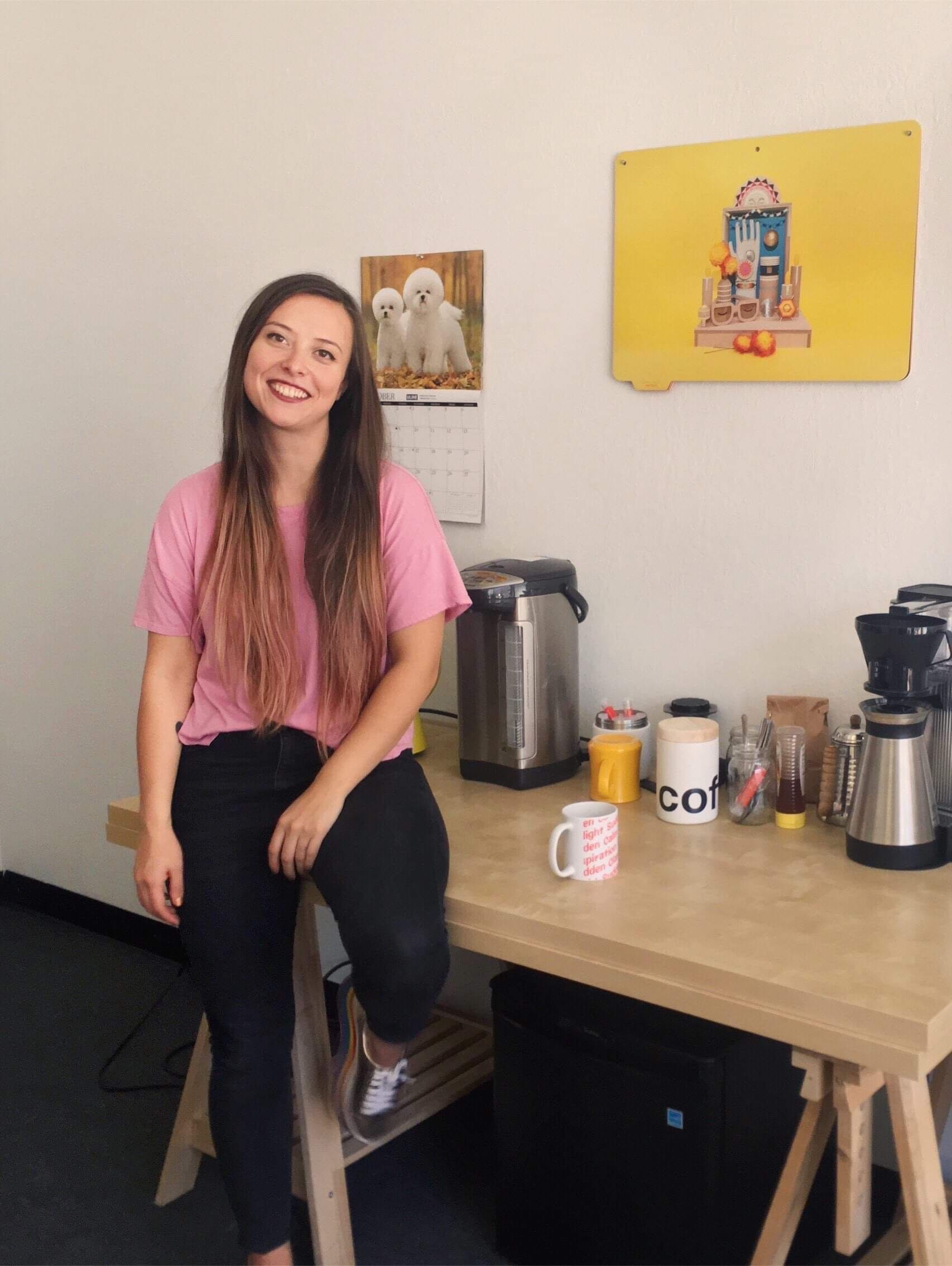
Umeko Motoyoshi is having a moment.
As VP of Technology at Sudden Coffee, 2018 Sprudgie Award Winner for Outstanding Achievement In The Field of Excellence, and creator of the Rainbow Cupping Spoon Project, you’d be hard pressed to name a more influential and socially active coffee professional in the world today. And now comes CHANGING STRUCTURES, a new event they’ve created in collaboration with the #CoffeeToo project.
Sprudge co-founder Zachary Carlsen caught up with Motoyoshi to learn more about how they got here, and where they’re headed next. From the early genesis of the Rainbow Cupping Spoon—”I wanted to disarm something that scared me”—to global inspirations and new projects, Motoyoshi’s work represents nothing less than a shift in coffee’s traditional power structure. Hundreds of rainbow spoons are now making their way around the planet, in case you had any doubt, and that’s just the start.
For this wide-ranging and candid interview, Carlsen spoke with Motoyoshi digitally from San Francisco.
In the 2018 Sprudgie Awards, you were a finalist in the social media category for @umeshiso_, an honoree for your Rainbow Cupping Spoons, and the winner in the Outstanding Achievement in the Field of Excellence. First I just want to say congratulations, Umeko.
Thank you! I appreciate that so much, and I appreciate Sprudge for creating these awards, and the community for engaging in such a thoughtful and passionate way.
You’re the VP of Technology at Sudden Coffee and also freelance. Tell us how you got there!
As we know, cafe equipment only breaks at the worst possible times. I used to manage cafes, and it felt hard to be at the mercy of a technician’s schedule when steam was shooting out of the espresso machine. I tried apprenticing with an espresso tech, but he kept pressuring me to sleep with him. So I paid out of pocket to take La Marzocco’s technician training course. It was really life-changing for me. I had always loved La Marzocco machines, and learning how to repair them just made me fall deeper in love.
La Marzocco also connected me with Daymond Jordan, who refurbished and modded their machines in Seattle. It felt like a really big deal to have folks from La Marzocco support me in that way—at that time I had never even met a woman espresso tech. I was extremely lucky to apprentice with Daymond, because he truly was a master at his craft. His creativity and passion deeply influenced me, and I carried a mechanical interest throughout every subsequent job in coffee.
So when I ended up at Sudden seven years later, it was a dream job. I jumped in right away with sourcing and designing industrial coffee brewing equipment. Sudden’s founders, Josh and Kalle, were extremely invested in my professional development, and they also gave me a lot of autonomy. They handed me this wild mechanical project, and said, “No one’s ever done this before, but you can figure it out.” So I did, and I kept doing more projects, and eventually I ended up with a VP title.
A few months ago, I started taking on freelance work—mostly writing and mechanical projects. The writing is focused on creating HR policies, manuals, blog posts, and handbooks for coffee companies, and I’m also writing a book this year.
I’m also interested in working with specialty coffee companies who are getting into the RTD space. It can be challenging to find scaled brewing solutions that deliver consistent high quality and shelf stability. And operationally there can be so many challenges, too. But I really believe in RTDs as an important way to make specialty coffee accessible to a new audience. So it’s exciting to me that my work over the past few years puts me into that space in terms of experience.
Over the past month, I’ve been transitioning into full-time freelance work. I’d like to focus on writing, community organizing, building cool coffee science projects, and growing my webshop, Umeshiso. I’m expanding the wholesale part of my business and introducing some fun options like custom engraving.
It is definitely weird to realize that, in a few more weeks, I won’t be at Sudden anymore. I was the first employee, and I can’t begin to express how much it means to me. I know it’s normal to transition, and I am proud of myself for starting my own businesses and being responsive to my own development as a human. But I will miss the team a lot! So it’s a tender time for me right now, with a lot of growth and looking forward, while I honor everything that has brought me to this place.
Your father led tea ceremonies. Where and when? Tell us more about this, and how that influenced your life/career.
My dad’s name was Paul Motoyoshi. He was one of the funniest people I’ve ever met, and one of the smartest, and kindest, and most eccentric. He was born in a US concentration camp during World War II, and after the war there was intense pressure on Japanese Americans to assimilate. But no one on the Japanese side of my family gave two fucks about what they were “supposed” to do. This landed some of them in prison a few times, for protesting different oppressive structures throughout history.
So my dad, coming from Motoyoshi blood, didn’t give a fuck about the pressure to assimilate. I’m very proud of my dad’s accomplishments—he was incredibly hard-working and studious during his childhood, was an Eagle Scout and a valedictorian, and got a free ride scholarship to Harvard. And I’m very proud that he did all this while actively engaging in learning about Japanese culture, writing poetry in Japanese, learning Japanese arts and Japanese cooking. He became a Japanese tea ceremony master in his thirties and taught tea throughout his life.
Tea ceremony, and specifically the way that my dad taught it, impacted me tremendously. I learned from him that ritual is sacred and it also is warm, and kind, and should be offered with humility. I learned that something as simple as preparing a hot drink for someone can hold more feeling and meaning than words can express. When there are no words, there is ritual.
So it was kind of destined that I would get into specialty coffee and that I’d pursue it passionately. But I was also heavily influenced by the humor that my dad brought to his teaching. He liked to start his classes all dressed in his beautiful Japanese tea robe, and he’d get up and very sternly tell his students that tea ceremony was incredibly difficult. “It’s very hard, so listen very closely,” he’d say. “You boil water… and then you make tea.” Everyone would burst out laughing, and from there the classes would be very interactive and funny. He was such a great teacher because he made people laugh.
I think it’s so important for us to make specialty coffee welcoming in this way, human and funny and kind and unexpected. It’s no accident that I am my father’s child, and I ended up making specialty instant coffee for a living!
I wanted to talk about your Honoree designation in the Sprudgies “Best New Product” category. Tell us about your glorious rainbow cupping spoons!
Aw man. So, I have cupping trauma. The cupping table can be a huge opportunity for everyone’s insecurities to come out. And some people’s insecurities come out as them being really insistent on their rightness, punishing coffees super severely just to show off, and engaging in a wide range of other macho maneuvers. When I first started attending cuppings, it was usually all white dudes and then me with my little pink pixie cut and bright outfits, and the way they talked about the coffees scared the crap out of me.
It’s so weirdly traumatizing to be told that someone’s ultra-specific and arcane tasting notes are empirical fact. Like, that his mouth is basically the same as a liquid chromatography chamber. Throughout my early twenties, I just kept trying to figure this out, because it made no sense to me. Yet I was surrounded by People In Charge who kept insisting that there was only one right way to taste a coffee.
Over time, as I researched and researched and talked with food scientists and chemists, I established for myself, for my own knowing and peace of mind, that flavor is truly subjective. That different people perceive different things in coffee, and scour their own unique bank of sense memories to arrive at a tasting note. That when I said pine, and that white guy with a beard corrected me and said cedar—we both were right, because there is no right.
And then I was mad about it. I was mad that I’d spent so many years having my reality questioned on a daily basis. I wanted to scale the Empire State Building and yell through a megaphone: “Organoleptic perceptions of coffee are not fucking factual!”
Instead of doing that, because it seems slightly unsafe, I decided that I was going to find a rainbow-anodized cupping spoon. I wanted to disarm this thing that had become a source of trauma and anxiety, by bringing my own spoon and my own approach and my own knowing. And my own self.
Last year I had a severe mental breakdown and was diagnosed with Complex PTSD and Bipolar II Disorder. As I recovered, I found a direct supplier of rainbow spoons and established a relationship, and I started mailing spoons out to my friends for free. After I mailed out 75 spoons, I realized I would have to start selling them otherwise I’d go broke. And that is how Umeshiso started.
It’s amazing to me that my cupping trauma and my mental breakdown gave rise to something that has positively impacted people all over the world. Every time someone tells me that their rainbow spoon makes them feel confident at cuppings, I want to cry.
At UK Cup Tasters last year, each competitor was gifted a rainbow spoon. A little girl in attendance became so fascinated with the spoons that she started mimicking the cuppers, pretending to compete. Mat North gifted her a rainbow spoon of her own. It makes me so happy just to be a part of something like that.
There’s so much love for this cupping spoon. I love how they are popping up all over the world. Where have they gone and where are they going next?
I was really, really excited when I was able to get an order through to someone in Iran. It’s so tough to get anything into Iran from the US, so it felt miraculous when the rainbow spoons got through! My customer and I worked together on it, DMing back and forth on Instagram, and it was really exhilarating when the spoons finally made it. It was like, “Fuck our governments. We are just two people who respect and care about each other, and like colorful spoons.”
I also love sending out orders to countries that grow coffee. I’ve sent spoons to Colombia, Brazil, Indonesia, Vietnam, the Yunnan region of China, and a few others. My customers in the UK are awesome, and throughout Europe generally. I ship to every country, so there are rainbow spoons out there all over the world.
Antarctica and Africa are the only continents I have yet to ship to, and I feel like Antarctica may not happen anytime soon. If anyone is going to an African country, DM me so I can send you some spoons to bring! And of course, if anyone knows about some cuppings in Antarctica, let me hook it up with rainbows!
You were also a finalist in the social media category. Your account highlights so many voices in coffee (and the world). Tell us about your current initiative for Black History Month.
Every coffee person is their own person, outside of work, and has their own sphere of influence. So I post a lot of things on my Instagram that may seem, on the surface, unrelated to coffee. Because as we grow together in community, as people, we bring what we learn into our work. And we share our progress with friends who work in other fields, and they bring that to their own spheres. This is how we make our industry, and the world, better.
The US has a massive race problem, and I can’t always speak to that solely through the lens of coffee. Sometimes it’s just like, this is important for all of us as people, and it’s up to us to transform our learning into practical application in our work.
I deeply admire Rachel Cargle, a writer and lecturer at Columbia University. On her Instagram this month, she’s posting daily prompts about significant moments, movements, and figures in American Black history. The intent is for white folks and non-black PoC to research the prompt on their own, which is such a wonderful concept. Black history is American history, but in our schools we mostly just learn about white history, from a white perspective.
I am always googling everything—curiosity just runs in my family—and I also love to share about what I learn. So as I follow Rachel Cargle’s prompts, I take screenshots from my research and assemble them into daily Instagram posts. I’ve learned so much from this, and am now hoping to do some similar work for Filipino Heritage month and Native American Heritage month. For someone like Rachel Cargle to post these prompts, and for FREE, is an incredible learning opportunity. So I want to use whatever skillset I have to amplify her work.
So many white folks and non-Black PoC—I am both—are either uninformed or misinformed about Black history. It’s a huge problem! How can I begin to understand today’s racial dynamics, when my “understanding” is built on an ignorance of history? This ignorance is foundational to the continued functioning of racist structures, while the burden of education almost always falls on Black people, the very people who are harmed by these structures.
Rachel Cargle’s project places the emphasis on white folks and non-Black PoC to take charge of their own learning. She is putting in the daily emotional and intellectual labor to make this happen, and she shouldn’t have to. It should be taught in schools. She is incredibly generous for doing this important work, and she deserves all the credit (and all the monetary compensation). If anyone out there is enjoying the posts I’ve made about her prompts, I encourage you to donate to her! Rachel has a Patreon and you can also make a one-time donation at her PayPal.
Name a few people in world who you turn to for inspiration, encouragement.
I’m super introverted but I also really love community. So I connect with people a lot through Instagram and other online platforms, and I’ve ended up in close friendships with people I’ve never met before IRL. These relationships bring me so much joy and strength.
I live on opposite coast from my friend Kristina Jackson, who works at Intelligentsia, and we’re learning Spanish together. I feel so proud of us! The other day my friend Ashley Rodriguez, who lives in Chicago, Venmo’d me $5 and was like “I care about you, go get a coffee!” Like—just really tender and special shit. I never really had that before, and it grew from community organizing and shared belief.
In real life, my best friend Hana Yoshimoto is a constant inspiration. She has more emotional intelligence than anyone I’ve met. I look up to Jenn Chen and Michelle Johnson so much—they were the first people I saw starting bold conversations about race and gender in coffee. For the first time, I felt like I could be myself and honestly represent what I care about. And it made me want to model that for other people, the way Jenn and Michelle modeled it for me.
And my mom is just fucking amazing. Every time we talk, I learn something new about her. And I’ve known her my entire life. A few years ago, she casually mentioned that she used to work for a coffee business in San Francisco, before specialty coffee was even a thing. The shop was focused on selling roasted coffee, with a coffee service aspect was built into it. My mom talked her customers through the different coffees and their flavor profiles, and she’d make them pour-overs so they could taste the coffees before buying. I’d worked in coffee for ten years before my mom told me that.
She is one of the smartest and most curious people I’ve known, she’s completely brilliant. And she is so lowkey about it. She just does her thing and doesn’t really care if other people notice or not. She teaches me so much about critical thinking, about questioning, about building your own path. I am incredibly lucky that my mom is my best friend. I look up to her so much, and she constantly encourages and inspires me.
What are some things you wish you had known when you started your professional journey?
I wish I had known these three things:
- You’re good enough. In fact, you’re extra. Anyone who tells you otherwise is mistaken.
- No one will give you permission to do what you want to do. Because they won’t understand it. So you will have to do it without permission.
- Informed, supported, and encouraged communities are the most effective means of decentralizing power.
Do you have a favorite book, piece of art, music composition?
I continually turn to Emergent Strategy, by Adrienne Maree Brown. In biology, emergence describes how collective properties arise from smaller individual parts. “Emergent Strategy” examines, with joy and Rihanna references, radical movements past and present – through an emergent lens.
Here’s a poem from the book, that I have saved as the wallpaper on my phone:
i am not afraid
of what i came here to do
i’m made of stardust
we are not afraid
of what we’re called now to do
we’re all made of god
Adrienne’s work is an affirmation and an inspiration. My understanding of the book shifts each time I read it, and I still do not fully understand any part of it. At the same time, I understand it in my body.
And my favorite movie is Spice World.
You won the Outstanding Achievement in the Field of Excellence Sprudgie Award in 2018. Tell us what that means for you.
To me, it means that the work I’ve been a part of has created positive impact. It means that the connection I feel with my community is real, and the values we share are important. It felt like a huge, overwhelming honor—one of my role models, Michelle Johnson, won this award in 2016, and I look up to her so much. When I voted for Michelle in 2016, and again in 2018, I voted because she is a phenomenal human being and I believe in her, and I see her continually create new possibility in our industry. The Sprudgies have become such an amazing vehicle for change, as the community continues to expand what and whom we celebrate, and why.
The 2018 nominee list was like an A-Team of people who 1. I idolize and 2. Hold identities that, in the past, would have meant them getting passed over, not rightfully acknowledged. So I want to recognize Sprudge for creating the only awards in coffee (I think!) that are given by popular vote. Because it allows our community to bolster new faces and new names who perhaps wouldn’t have been recognized by The Establishment. So thank you!
Tell us more about Changing Structures and the genesis of this incredible project.
When I stepped off the cafe floor in 2016, I was sick and tired of being sick and tired. I was sick of getting paid low wages for extremely skilled work, I was sick of having to put up with harassment from customers, I was sick of the way that asymmetrical power informed every aspect of my experience as a worker. I loved coffee, and I loved service, and through every job I held in coffee I also worked regular floor shifts (because I loved it). But it had been 10 years and I just couldn’t deal with being treated like I was disposable.
It was a great privilege to be able to step off the floor when I couldn’t take it anymore. And when I benefit from privilege, I feel it’s my responsibility to work toward dismantling the structure that allows me that privilege, while denying it to others. There are so many people who work in coffee, who are brilliant, and sensitive, and creative, and who care so deeply about coffee and about the human community. It’s a travesty when they are overlooked and excluded from important conversations—conversations that would benefit from their perspectives. So I envisioned CHANGING STRUCTURES, an interactive panel event, as a direct response to that.
Each panelist has come up against a structure in coffee that didn’t serve them, and didn’t serve their community, and they built an alternative. We want this to be both a how-to and an invitation. We want everyone in our community to know that they are important, and they are needed, that no one is disposable, that everyone has a valuable perspective to bring to the table.
I am so thankful for my co-organizer, Molly Flynn, who founded #coffeetoo. We’ve worked together to make CHANGING STRUCTURES an intentionally welcoming space. Events can be overwhelming for a lot of folks—I often feel intimidated and out of place at them—so we wanted to create the kind of hospitality that many of our guests provide in their cafes.
Someone will be at the door to greet you, thank you for coming, and orient you in the space; to point out the Liberty cocktail bar, the refreshments, where to sit.
We’ll hand out a zine, laid out by Kat Melheim of Coffee People Zine, for guests to read if they’re feeling more introverted, and to take with them for inspiration on our next steps as a community. There’s a section in the zine for notes, and we’ll even have little pink pencils!
We’re also doing a raffle giveaway to benefit #coffeetoo, and we went all out with the prizes. In addition to Umeshiso spoons and other swag, Fellow is contributing an entire matte black EKG and Acaia donated a GOLD Pearl. Which I didn’t even know was a thing! We really wanted the giveaway to be amazing for our guests and our sponsors came through in a major way!
We’ll hear from Radhika Kapur, founder of Third Culture Coffee in Bellevue. Her menu features exquisitely prepared coffee drinks from all over the world, breaking from the US-centric idea that good coffee can only be an espresso, or a light-roasted SO pour-over taken black. The story of her travel and meticulous research is incredible.
We also will hear from Ian Williams, who founded Deadstock Coffee in Portland. A former shoe designer for Nike, Ian combined his love of sneakerhead culture with a passion for specialty coffee. This pairing, combined with a diverse team of baristas, creates a space that feels like home for a wide demographic of guests, especially Black folks and other people of color, who did not previously feel welcomed in many cafes.
Laura Perry, founder of LÜNA Coffee in Vancouver, BC, will share about her path as she shifts conversations about the cost of green coffee. As a green buyer, she continually identifies and creates alternatives to exploitative colonial structures, and has built a completely unique coffee sourcing protocol for her business.
CHANGING STRUCTURES is an invitation to anyone and everyone whose voice hasn’t been heard yet. We want our guests to leave feeling empowered and a part of something, and with tools and stories and examples. And this isn’t just a kumbaya thing—our industry is facing urgent existential crises and we need all hands on deck. There are so many people entering coffee today who are passionate and brilliant and driven, and as an industry we can’t afford to keep excluding them from important conversations. Fuck that.
We’re saying, “Let’s be a part of this together. Here are our stories and our ideas. We want to hear yours.”
You do such a wonderful service shining a light on people and projects in the world. Who is making coffee more wonderful right now?
Thank you! I’m just trying to grow my platform so that more people can stand on it. To be honest, I don’t know how to start answering this question because there are SO MANY PEOPLE making coffee a better place.
And it’s easy for me to name people who are thought of as leaders, but leaders are nothing without community. Our community, in this little part of the world, is working so hard and working together, and supporting one another, boosting each other’s work, earnestly and actively engaged in learning, each unique person bringing their perspective to the table.
I am proudest to be a part of a community, and this community specifically. In a lot of ways, we’re a hot mess, but we are working so hard to change for the better. We’re working so hard to grow. And in other ways, we’re really leading other industries. Most cafes on the west coast now have gender-neutral bathrooms, as an example. And taking a wide view of the industry as a whole. Specialty coffee is the only industry *founded* on the idea that we should pay MORE for raw materials. Because it’s just fucking fair.
So I mean this in complete and total sincerity, not as a cop-out, not as a woo-woo moment: when we work together, as a global community, to improve each other’s lives, we make coffee more wonderful.
Thank you so much for your time!
Thank you!
Changing Structures happens Thursday, February 21st in Seattle. More information here.
Oatly is the presenting sponsor of the 10th Annual Sprudgie Awards.
Zachary Carlsen is a co-founder and editor at Sprudge Media Network. Read more Zachary Carlsen on Sprudge.











